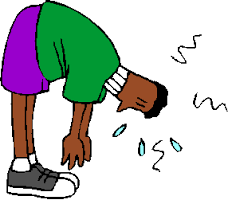I was really excited for our P.E. input as anyone who knows me knows I enjoy exercising and playing sports. I think we were all a bit nervous as we weren’t sure what was going to be involved in terms of efforts of exertion however I think w e knew Will wouldn’t have us running laps for the whole hour. I was surprised the find out the aims of a warm up that I had not considered before in a P.E class. For our warm up Will gave us a series of simple instructions to follow. He asked us what the intention of this and most of our answers were as you would expect such as increase heart rate and preparing the body. Will then explained his intentions were not only of that mentioned but to also identify areas such as:
e knew Will wouldn’t have us running laps for the whole hour. I was surprised the find out the aims of a warm up that I had not considered before in a P.E class. For our warm up Will gave us a series of simple instructions to follow. He asked us what the intention of this and most of our answers were as you would expect such as increase heart rate and preparing the body. Will then explained his intentions were not only of that mentioned but to also identify areas such as:
- Physical ability
- Ability following instructions
- Potential bullying
- Competitiveness
- Motivation
The simple instruction that were given for us to follow were also allowing Will to assess who is or isn’t physically able to do some movement. If a child cannot bend  down to touch their toes or they aren’t co-ordinated they may need further help in certain areas. Another of the instructions was to stop jogging and sprint in the opposite direction – this was so assess spacial awareness.
down to touch their toes or they aren’t co-ordinated they may need further help in certain areas. Another of the instructions was to stop jogging and sprint in the opposite direction – this was so assess spacial awareness.
The next part of our warm up was to jog round the hall and when will shouted “freeze”, he would show the number of fingers of how many people to get in to groups. What he was doing here was to see if we could follow non-verbal instruction but also identifying possibilities of bullying e.g. do the same people always go in a group and are some people always left out. By doing this when it comes to grouping for further drills or activities the teacher can work out ways to put people in different groups. I am guilty of saying in school we did try to outsmart our teachers by not all lining up in a row to try to be grouped together.
Next in partners we took turns to dribble a ball, however there were only one or two full sized basketballs. What Will was showing us here is that the resources available to us may not match up with our lesson plans so we should checking to see what is available before planning.
I did come across some interesting information while researching for this blog post and came across this report. sportscotland and Education Scotland invested £5.8m to support local authorities in providing two hours for primary and two period for secondary school of quality physical education per week. This report details how some local authorities spent this money including buying resources, sports equipment and inclusion training for teachers to fully include children with additional support needs. From this hopefully the schools we work in will have benefited from this investment and resources won’t be an issue.
Most importantly from this input I learned that P.E isn’t about doing a gym class for two hours per week and that’s it. It provides learners with the opportunity to build and improve physical fitness but also build upon interpersonal skills from working in groups. It allows for children to take on leadership roles and demonstrate fair play.



